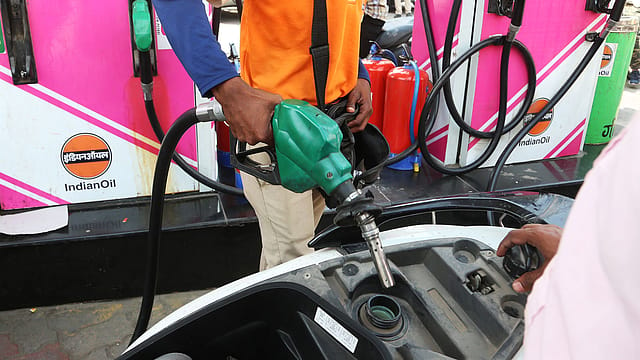States should cut VAT on petrol, diesel: PM Modi
ADVERTISEMENT

Prime minister Narendra Modi on Wednesday urged state governments that did not reduce value added tax (VAT) on petrol and diesel in November last year to do it now.
These states include Maharashtra, West Bengal, Telangana, Andhra Pradesh, Tamil Nadu, Kerala, and Jharkhand.
In order to reduce the load of petrol and diesel prices, the central government has reduced the excise duty and had requested the states also to cut taxes, the prime minister mentioned during his interaction with chief ministers to review Covid-19 situation in the country.
"Some states reduced taxes but some states did not pass on the benefits to the people, leading to higher cost of petrol and diesel in these states," the PM says. "This is not only injustice towards the people of the state but harms the neighbouring states also."
States like Karnataka and Gujarat undertook the tax reduction for the welfare of the people despite revenue loss while their neighbouring states earned revenue by not reducing tax, he adds.
42% of the revenue at the Centre goes to state governments, says Modi. "I urge all the states to work as a team in this time of global crisis following the spirit of cooperative federalism," the PM adds.
This comes weeks after India's retail inflation rose to 6.95% in March 2022 compared with 6.07% in February over higher food prices.
IMF on rising inflation in India
The International Monetary Fund (IMF) has downgraded India’s growth forecast from 9% to 8.2% for the financial year 2022-23 amid rising food and fuel prices.
“I think that on India we really see the difficult policy trade-off for policymakers supporting the worldwide controlling of inflation which has already started going up and which now outside of the RBI spend—I mean the reason why inflation has gone up is really the spillovers from the war in the Ukraine where India is particularly dependent on oil and commodity imports,” says Anne-Marie Gulde-Wolf, acting director of the IMF’s Asia and Pacific Department. “So, in the short run, we think that a commodity fiscal stance is appropriate, supporting vulnerable households, and putting focus on infrastructure investment.”
“In terms of monetary policy, well-communicated monetary policy actions are needed but probably some monetary tightening. You asked about growth potential, and I think that is one of our key messages. To enhance India's growth potential, it is important to address structural weaknesses of the Indian economy that provide bottlenecks to achieve longer-lasting growth. These bottlenecks are in the labour market, land market, better educational outcomes, and very much also getting higher share of females into the labour force.”